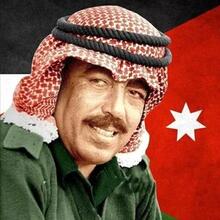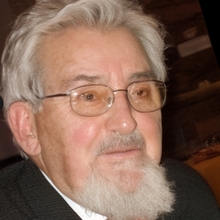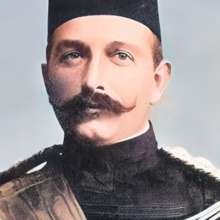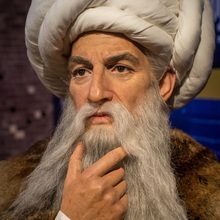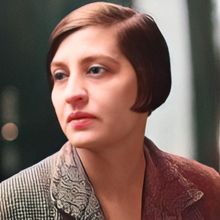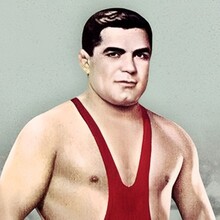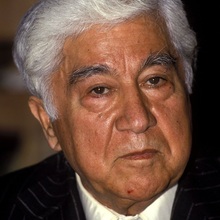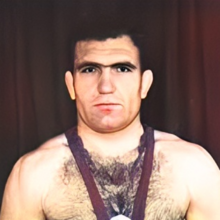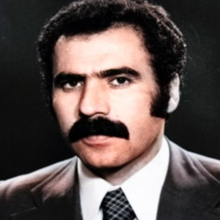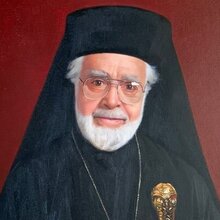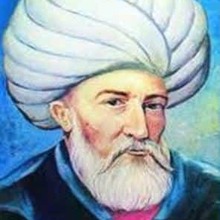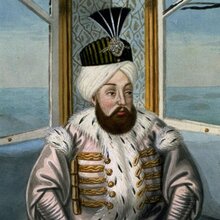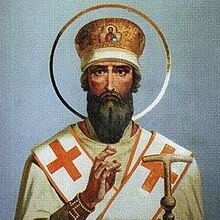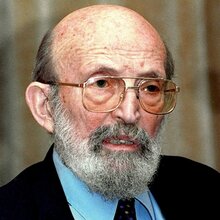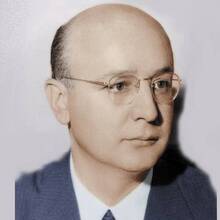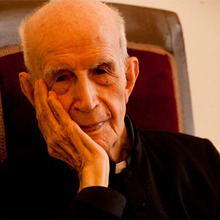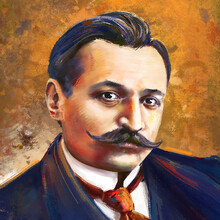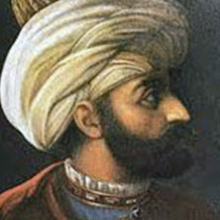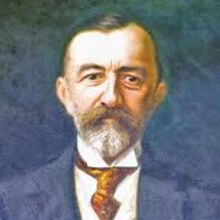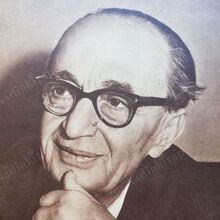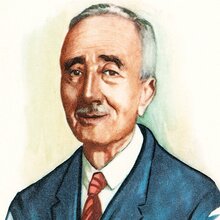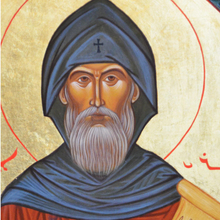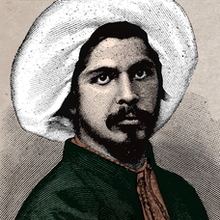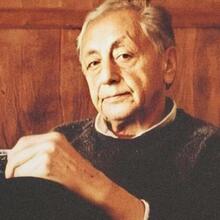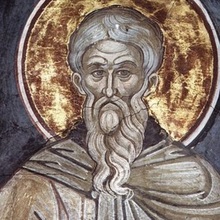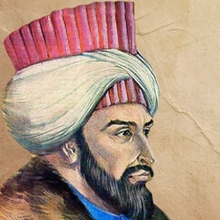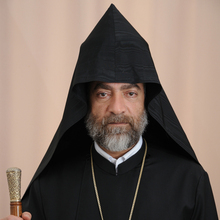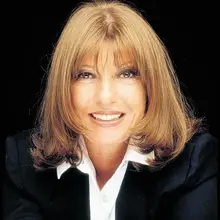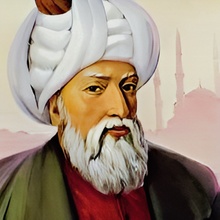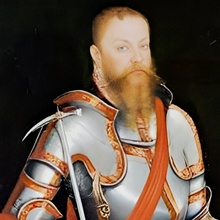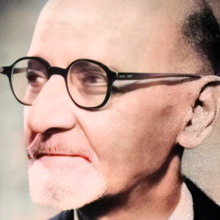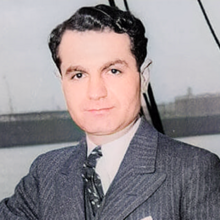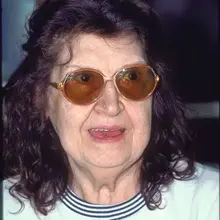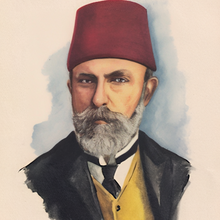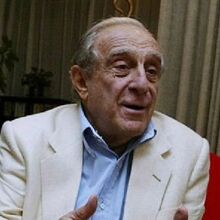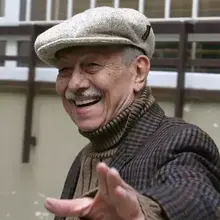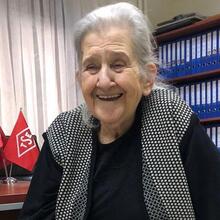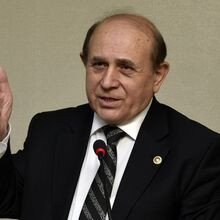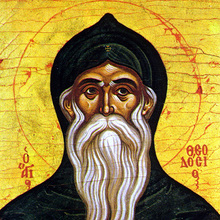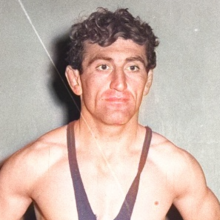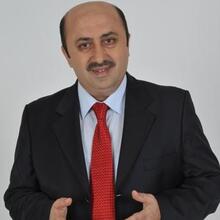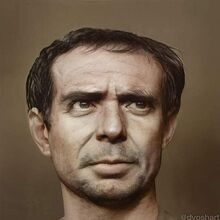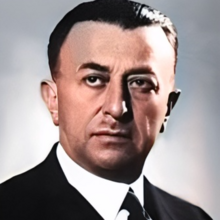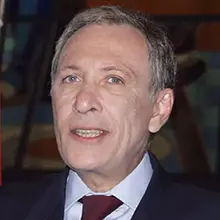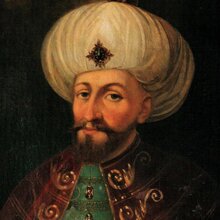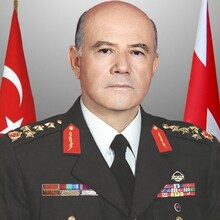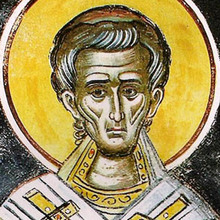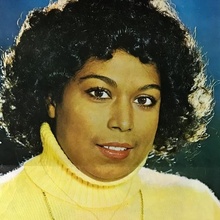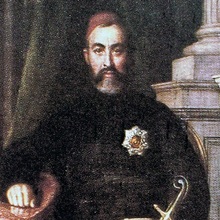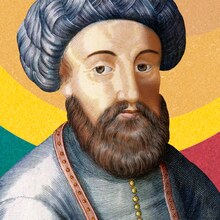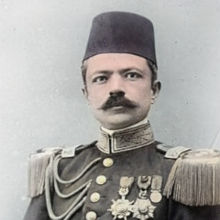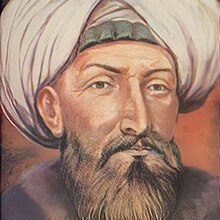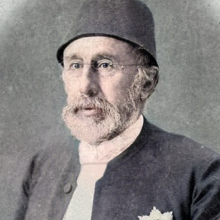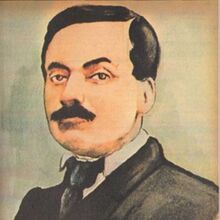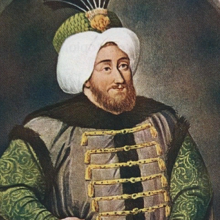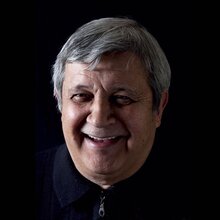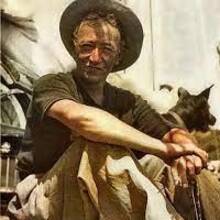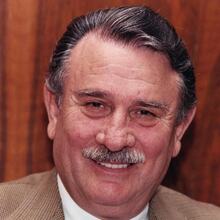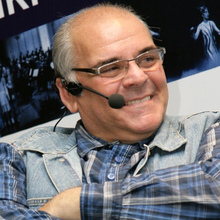 Ignatius Peter IV
1798 - 1894
Patriarch of Antioch and head
Ignatius Peter IV
1798 - 1894
Patriarch of Antioch and head
 Ahmed Djemal
1872 - 1922
Ottoman military leader
Ahmed Djemal
1872 - 1922
Ottoman military leader
 Simeon Metaphrastes
900 - 1000
Hagiographer and writer
Simeon Metaphrastes
900 - 1000
Hagiographer and writer
 Dario Moreno
1921 - 1968
Singer, composer, lyricist, guitarist, film actor
Dario Moreno
1921 - 1968
Singer, composer, lyricist, guitarist, film actor
 Ali Kemal
1869 - 1922
Minister of the Interior in the Ottoman Empire
Ali Kemal
1869 - 1922
Minister of the Interior in the Ottoman Empire
 Namik Kemal
1840 - 1888
Poet, playwright and social reformer
Namik Kemal
1840 - 1888
Poet, playwright and social reformer
 Adnan Menderes
1899 - 1961
Prime Minister of Turkey
Adnan Menderes
1899 - 1961
Prime Minister of Turkey
 Murad II
1404 - 1451
Sultan of the Ottoman Empire
Murad II
1404 - 1451
Sultan of the Ottoman Empire
 Recaizade Mahmud Ekrem
1847 - 1914
Writer, poet, literary critic, teacher
Recaizade Mahmud Ekrem
1847 - 1914
Writer, poet, literary critic, teacher
 Hrant Dink
1954 - 2007
Editor-in-chief of Agos
Hrant Dink
1954 - 2007
Editor-in-chief of Agos
 Burhan Kuzu
1955 - 2020
constitutional law professor and former MP
Burhan Kuzu
1955 - 2020
constitutional law professor and former MP
 Hovhannes Tcholakian
1919 - 2016
Archbishop of the Armenian Catholic Church
Hovhannes Tcholakian
1919 - 2016
Archbishop of the Armenian Catholic Church
 Ahmed II
1642 - 1695
Sultan of the Ottoman Empire
Ahmed II
1642 - 1695
Sultan of the Ottoman Empire
 Latife Usaki
1898 - 1975
Lawyer
Latife Usaki
1898 - 1975
Lawyer
 Halit Akcatepe
1938 - 2017
Actor
Halit Akcatepe
1938 - 2017
Actor
 Gulnus Sultan
1642 - 1715
Haseki Sultan of Mehmed IV
Gulnus Sultan
1642 - 1715
Haseki Sultan of Mehmed IV
 Burhan Asaf Belge
1899 - 1967
Politician, diplomat, journalist, writer
Burhan Asaf Belge
1899 - 1967
Politician, diplomat, journalist, writer
 Basil of Caesarea
330 - 379
Bishop of Caesarea and defender of orthodoxy
Basil of Caesarea
330 - 379
Bishop of Caesarea and defender of orthodoxy
 Theodosius the Cenobiarch
423 - 529
organizer of the cenobitic way of monastic life
Theodosius the Cenobiarch
423 - 529
organizer of the cenobitic way of monastic life
 Ziya Gokalp
1876 - 1924
Sociologist, writer, poet, and politician
Ziya Gokalp
1876 - 1924
Sociologist, writer, poet, and politician
 Ali Suavi
1839 - 1878
Political activist and reformer
Ali Suavi
1839 - 1878
Political activist and reformer
 Muslum Gurses
1953 - 2013
Arabesque singer and actor
Muslum Gurses
1953 - 2013
Arabesque singer and actor
 Suleiman the Magnificent
1494 - 1566
Sultan of the Ottoman Empire
Suleiman the Magnificent
1494 - 1566
Sultan of the Ottoman Empire
 Selim I
1470 - 1520
Ottoman sultan and caliph
Selim I
1470 - 1520
Ottoman sultan and caliph
 Meral Okay
1959 - 2012
Screenwriter and actress
Meral Okay
1959 - 2012
Screenwriter and actress
 Helin Bolek
1991 - 2020
Singer of Grup Yorum
Helin Bolek
1991 - 2020
Singer of Grup Yorum
 Omer Nefi
1572 - 1635
Ottoman poet and satirist
Omer Nefi
1572 - 1635
Ottoman poet and satirist
 Huseyin Hilmi Pasha
1855 - 1922
Grand Vizier of the Ottoman Empire
Huseyin Hilmi Pasha
1855 - 1922
Grand Vizier of the Ottoman Empire
 Neset Ertas
1938 - 2012
Folk singer and baglama player
Neset Ertas
1938 - 2012
Folk singer and baglama player
 Wasfi al-Tal
1919 - 1971
Prime Minister of Jordan
Wasfi al-Tal
1919 - 1971
Prime Minister of Jordan
 Sukru Saracoglu
1887 - 1953
Prime Minister of Turkey
Sukru Saracoglu
1887 - 1953
Prime Minister of Turkey
 Halide Edib Adivar
1884 - 1964
Novelist and pioneer in the emancipation of women
Halide Edib Adivar
1884 - 1964
Novelist and pioneer in the emancipation of women
 Abdulhak Hamid Tarhan
1852 - 1937
Turkish Romantic poet and playwright
Abdulhak Hamid Tarhan
1852 - 1937
Turkish Romantic poet and playwright
 Oguz Atay
1934 - 1977
Pioneer of the modern novel in Turkey
Oguz Atay
1934 - 1977
Pioneer of the modern novel in Turkey
 Mustafa Dagistanli
1931 - 2022
Wrestler and politician
Mustafa Dagistanli
1931 - 2022
Wrestler and politician
 Murad III
1546 - 1595
Sultan of the Ottoman Empire
Murad III
1546 - 1595
Sultan of the Ottoman Empire
 Necip Fazil Kisakurek
1904 - 1983
Poet, novelist, playwright, and Islamist ideologue
Necip Fazil Kisakurek
1904 - 1983
Poet, novelist, playwright, and Islamist ideologue
 Fatma Ceren Necipoglu
1973 - 2009
Harpist and university lecturer
Fatma Ceren Necipoglu
1973 - 2009
Harpist and university lecturer
 Ismail Cem ipeki
1940 - 2007
Minister of Foreign Affairs of Turkey
Ismail Cem ipeki
1940 - 2007
Minister of Foreign Affairs of Turkey
 Mustafa II
1664 - 1703
Sultan of the Ottoman Empire
Mustafa II
1664 - 1703
Sultan of the Ottoman Empire
 Ahmed Nedim
1681 - 1730
Ottoman lyric poet of the Tulip Period
Ahmed Nedim
1681 - 1730
Ottoman lyric poet of the Tulip Period
 Rasim Oztekin
1959 - 2021
Actor and comedian
Rasim Oztekin
1959 - 2021
Actor and comedian
 Iakovos Koukouzis
1911 - 2005
Primate of the Greek Orthodox Archdiocese
Iakovos Koukouzis
1911 - 2005
Primate of the Greek Orthodox Archdiocese
 Tuncel Kurtiz
1936 - 2013
actor, playwright and film director
Tuncel Kurtiz
1936 - 2013
actor, playwright and film director
 Basil II
958 - 1025
Byzantine emperor and military strategist
Basil II
958 - 1025
Byzantine emperor and military strategist
 Dilhan Eryurt
1926 - 2012
Astrophysicist
Dilhan Eryurt
1926 - 2012
Astrophysicist
 Muhammad Fadhel al Jamali
1856 - 1913
Ottoman generalissimo and grand vizier
Muhammad Fadhel al Jamali
1856 - 1913
Ottoman generalissimo and grand vizier
 Luther George Simjian
1905 - 1997
Inventor of the Bankmatic ATM and the Teleprompter
Luther George Simjian
1905 - 1997
Inventor of the Bankmatic ATM and the Teleprompter
 Arif Mardin
1932 - 2006
Music producer and arranger
Arif Mardin
1932 - 2006
Music producer and arranger
 Yildirim Akbulut
1935 - 2021
Prime Minister of Turkey
Yildirim Akbulut
1935 - 2021
Prime Minister of Turkey
 Ibrahim Sinasi
1826 - 1871
Founder of Turkish dramaturgy
Ibrahim Sinasi
1826 - 1871
Founder of Turkish dramaturgy
 Yousuf Karsh
1908 - 2002
Portrait photographer
Yousuf Karsh
1908 - 2002
Portrait photographer
 Nihat Erim
1912 - 1980
Prime Minister of Turkey (1971-1972)
Nihat Erim
1912 - 1980
Prime Minister of Turkey (1971-1972)
 Mimar Sinan
1488 - 1588
Chief Ottoman architect and civil engineer
Mimar Sinan
1488 - 1588
Chief Ottoman architect and civil engineer
 Duygu Asena
1946 - 2006
Journalist and author
Duygu Asena
1946 - 2006
Journalist and author
 Sukru Kaya
1883 - 1959
Minister of Interior and Foreign Affairs
Sukru Kaya
1883 - 1959
Minister of Interior and Foreign Affairs
 Mahmud Abdulbaki
1526 - 1600
Ottoman poet
Mahmud Abdulbaki
1526 - 1600
Ottoman poet
 Ibrahim Erkal
1966 - 2017
Singer, songwriter, composer and actor
Ibrahim Erkal
1966 - 2017
Singer, songwriter, composer and actor
 Anthimus VII Tsatsos
1827 - 1913
Ecumenical Patriarch of Constantinople
Anthimus VII Tsatsos
1827 - 1913
Ecumenical Patriarch of Constantinople
 Mustafa Resid Pasa
1800 - 1858
Grand vizier and chief architect of Tanzimat
Mustafa Resid Pasa
1800 - 1858
Grand vizier and chief architect of Tanzimat
 Ahmed Sefik Midhat Pasha
1822 - 1883
Grand Vizier and author of the Ottoman Constitutio
Ahmed Sefik Midhat Pasha
1822 - 1883
Grand Vizier and author of the Ottoman Constitutio
 Cyril Lucaris
1572 - 1638
Patriarch of Constantinople and Alexandria
Cyril Lucaris
1572 - 1638
Patriarch of Constantinople and Alexandria
 David Josiah Brewer
1837 - 1910
Associate Justice of the Supreme Court
David Josiah Brewer
1837 - 1910
Associate Justice of the Supreme Court
 Molana Jalal Uddin Rumi
1207 - 1273
Sufi poetry, Hanafi, Maturidi theology
Molana Jalal Uddin Rumi
1207 - 1273
Sufi poetry, Hanafi, Maturidi theology
 Defne Joy Foster
1975 - 2011
Actress, presenter, VJ
Defne Joy Foster
1975 - 2011
Actress, presenter, VJ
 Naim Frasheri
1846 - 1900
Poet, nationalist
Naim Frasheri
1846 - 1900
Poet, nationalist
 Timothy
17 - 97
Disciple of Paul the Apostle
Timothy
17 - 97
Disciple of Paul the Apostle
 Matild Manukyan
1914 - 2001
Real property investor and brothel owner
Matild Manukyan
1914 - 2001
Real property investor and brothel owner
 Osman Hamdi Bey
1842 - 1910
Painter, archaeologist, museum curator
Osman Hamdi Bey
1842 - 1910
Painter, archaeologist, museum curator
 Manolya Onur
1955 - 2017
Pageant queen and model
Manolya Onur
1955 - 2017
Pageant queen and model
 Mehmed II
1432 - 1481
Sultan of the Ottoman Empire
Mehmed II
1432 - 1481
Sultan of the Ottoman Empire
 Tevfik Fikret
1867 - 1915
Founder of the modern school of Turkish poetry
Tevfik Fikret
1867 - 1915
Founder of the modern school of Turkish poetry
 Constantine I
272 - 337
Roman emperor, first Christian emperor
Constantine I
272 - 337
Roman emperor, first Christian emperor
 Osman Ghazi
1258 - 1323
Founder of the Ottoman Empire
Osman Ghazi
1258 - 1323
Founder of the Ottoman Empire
 Deniz Gezmis
1947 - 1972
Marxist-Leninist revolutionary
Deniz Gezmis
1947 - 1972
Marxist-Leninist revolutionary
 Naji al Jerf
1977 - 2015
Documentary filmmaker
Naji al Jerf
1977 - 2015
Documentary filmmaker
 Anastasius I Dicorus
431 - 518
Byzantine emperor
Anastasius I Dicorus
431 - 518
Byzantine emperor
 Abdulaziz
1830 - 1876
Sultan of the Ottoman Empire
Abdulaziz
1830 - 1876
Sultan of the Ottoman Empire
 Halet Cambel
1916 - 2014
Archaeologist and Olympic fencer
Halet Cambel
1916 - 2014
Archaeologist and Olympic fencer
 Suleyman Celebi
1377 - 1411
Ottoman prince and co-ruler of the empire
Suleyman Celebi
1377 - 1411
Ottoman prince and co-ruler of the empire
 Ignatius Aphrem I Barsoum
1887 - 1957
Patriarch of Antioch and head
Ignatius Aphrem I Barsoum
1887 - 1957
Patriarch of Antioch and head
 Theophanes the Confessor
732 - 817
Monk and chronicler
Theophanes the Confessor
732 - 817
Monk and chronicler
 Markos Eugenikos
1392 - 1444
leading the anti-unionist party in the Eastern
Markos Eugenikos
1392 - 1444
leading the anti-unionist party in the Eastern
 Turgut Ozal
1927 - 1993
President and Prime Minister of Turkey
Turgut Ozal
1927 - 1993
President and Prime Minister of Turkey
 Sabiha Gokcen
1913 - 2001
World's first female fighter pilot
Sabiha Gokcen
1913 - 2001
World's first female fighter pilot
 Ahmed I
1590 - 1617
Sultan of the Ottoman Empire
Ahmed I
1590 - 1617
Sultan of the Ottoman Empire
 Gregory V of Constantinople
1746 - 1821
Ecumenical Patriarch of Constantinople
Gregory V of Constantinople
1746 - 1821
Ecumenical Patriarch of Constantinople
 John III Ducas Vatatzes
1192 - 1254
Emperor of Nicaea and Byzantine ruler
John III Ducas Vatatzes
1192 - 1254
Emperor of Nicaea and Byzantine ruler
 Enver Pasha
1881 - 1922
Ottoman general and war minister
Enver Pasha
1881 - 1922
Ottoman general and war minister
 Osman III
1699 - 1757
Sultan of the Ottoman Empire
Osman III
1699 - 1757
Sultan of the Ottoman Empire
 Alec Issigonis
1906 - 1988
Automotive designer and engineer
Alec Issigonis
1906 - 1988
Automotive designer and engineer
 Mehmet Fuat Koprulu
1890 - 1966
Turkologist, sociologist, historian
Mehmet Fuat Koprulu
1890 - 1966
Turkologist, sociologist, historian
 Sabbatai Zevi
1626 - 1676
Jewish mystic and messianic claimant
Sabbatai Zevi
1626 - 1676
Jewish mystic and messianic claimant
 Birol Unel
1961 - 2020
Actor
Birol Unel
1961 - 2020
Actor
 Ilhan Berk
1918 - 2008
Poet, essayist, translator
Ilhan Berk
1918 - 2008
Poet, essayist, translator
 Osman II
1604 - 1622
Sultan of the Ottoman Empire
Osman II
1604 - 1622
Sultan of the Ottoman Empire
 Germanus I of Constantinople
634 - 740
Patriarch of Constantinople and theologian
Germanus I of Constantinople
634 - 740
Patriarch of Constantinople and theologian
 Ibrahim I
1615 - 1648
Sultan of the Ottoman Empire
Ibrahim I
1615 - 1648
Sultan of the Ottoman Empire
 Fevzi Cakmak
1876 - 1950
Chief of General Staff of Turkey
Fevzi Cakmak
1876 - 1950
Chief of General Staff of Turkey
 Mustafa III
1717 - 1774
Sultan of the Ottoman Empire
Mustafa III
1717 - 1774
Sultan of the Ottoman Empire
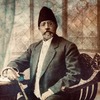 Mahmud Tarzi
1865 - 1933
Mahmud Tarzi
1865 - 1933
 Mehmed V
1844 - 1918
Sultan of the Ottoman Empire
Mehmed V
1844 - 1918
Sultan of the Ottoman Empire
 Shimon Agassi
1852 - 1914
Patriarch of Antioch
Shimon Agassi
1852 - 1914
Patriarch of Antioch
 Murad V
1840 - 1904
Sultan of the Ottoman Empire
Murad V
1840 - 1904
Sultan of the Ottoman Empire
 Abdulmejid II
1868 - 1944
Last Ottoman caliph and painter
Abdulmejid II
1868 - 1944
Last Ottoman caliph and painter
 Ismet inonu
1884 - 1973
President of Turkey
Ismet inonu
1884 - 1973
President of Turkey
 Mehmed VI
1861 - 1926
Sultan of the Ottoman Empire and Caliph of Islam
Mehmed VI
1861 - 1926
Sultan of the Ottoman Empire and Caliph of Islam
 Mehmed IV
1642 - 1693
Sultan of the Ottoman Empire
Mehmed IV
1642 - 1693
Sultan of the Ottoman Empire
 Naum Veqilharxhi
1797 - 1846
Lawyer and scholar
Naum Veqilharxhi
1797 - 1846
Lawyer and scholar
 Omer Dongeloglu
1968 - 2020
program yapımcısı ve televizyon sunucusu
Omer Dongeloglu
1968 - 2020
program yapımcısı ve televizyon sunucusu
 Raghda Hassan
1960 - 2021
Writer and activist
Raghda Hassan
1960 - 2021
Writer and activist
 Mahmud Shevket Pasha
1856 - 1913
Ottoman generalissimo and grand vizier
Mahmud Shevket Pasha
1856 - 1913
Ottoman generalissimo and grand vizier
 Mehmed III
1566 - 1603
Sultan of the Ottoman Empire
Mehmed III
1566 - 1603
Sultan of the Ottoman Empire
 Cetin Altan
1927 - 2015
Writer, journalist and member of parliament
Cetin Altan
1927 - 2015
Writer, journalist and member of parliament
 Constantin Brancoveanu
1654 - 1714
Prince of Wallachia
Constantin Brancoveanu
1654 - 1714
Prince of Wallachia
 Hussein bin Ali Hashami
1854 - 1931
Sharif and Emir of Mecca, King of Hejaz
Hussein bin Ali Hashami
1854 - 1931
Sharif and Emir of Mecca, King of Hejaz
 Mirza Muhammad Ali
1853 - 1913
Ottoman generalissimo and grand vizier
Mirza Muhammad Ali
1853 - 1913
Ottoman generalissimo and grand vizier
 Bulent Ecevit
1925 - 2006
Prime Minister of Turkey
Bulent Ecevit
1925 - 2006
Prime Minister of Turkey
 Artemisia I of Caria
350 - 450
Queen of Halicarnassus and ally of Xerxes I
Artemisia I of Caria
350 - 450
Queen of Halicarnassus and ally of Xerxes I
 Ahmed III
1673 - 1736
Sultan of the Ottoman Empire
Ahmed III
1673 - 1736
Sultan of the Ottoman Empire
 Kenan Evren
1917 - 2015
President and coup leader
Kenan Evren
1917 - 2015
President and coup leader
 Safiye Ali
1894 - 1952
Physician
Safiye Ali
1894 - 1952
Physician
 Mahmud II
1785 - 1839
Sultan of the Ottoman Empire
Mahmud II
1785 - 1839
Sultan of the Ottoman Empire
 Necati Cumali
1921 - 2001
Writer and poet
Necati Cumali
1921 - 2001
Writer and poet
 Asik Veysel
1894 - 1973
Poet and bağlama player
Asik Veysel
1894 - 1973
Poet and bağlama player
 Cem Sultan
1459 - 1495
Sultan of the Ottoman Empire (claimant)
Cem Sultan
1459 - 1495
Sultan of the Ottoman Empire (claimant)
 Roohi Bano
1951 - 2019
TV actress and model
Roohi Bano
1951 - 2019
TV actress and model
 Orhan Bey
1281 - 1362
Sultan of the Ottoman Empire
Orhan Bey
1281 - 1362
Sultan of the Ottoman Empire
 Ahmet Tevfik Pasha
1845 - 1936
Last Grand Vizier of the Ottoman Empire
Ahmet Tevfik Pasha
1845 - 1936
Last Grand Vizier of the Ottoman Empire
 Hayreddin Barbarossa
1478 - 1546
Ottoman naval commander and corsair
Hayreddin Barbarossa
1478 - 1546
Ottoman naval commander and corsair
 Fikriye Hanim
1887 - 1924
Relative and lover of Mustafa Kemal Atatürk
Fikriye Hanim
1887 - 1924
Relative and lover of Mustafa Kemal Atatürk
 Bayezid I
1360 - 1403
Sultan of the Ottoman Empire
Bayezid I
1360 - 1403
Sultan of the Ottoman Empire
 Mesut Yilmaz
1947 - 2020
Prime Minister of Turkey
Mesut Yilmaz
1947 - 2020
Prime Minister of Turkey
 Yasar Dogu
1913 - 1961
Wrestler
Yasar Dogu
1913 - 1961
Wrestler
 Fehim Zavalani
1859 - 1935
Delegate to the Congress of Monastir
Fehim Zavalani
1859 - 1935
Delegate to the Congress of Monastir
 Halide Edib Adivar
1884 - 1964
Novelist and feminist activist
Halide Edib Adivar
1884 - 1964
Novelist and feminist activist
 Gregory Palamas
1296 - 1357
Orthodox monk and archbishop of Thessalonica
Gregory Palamas
1296 - 1357
Orthodox monk and archbishop of Thessalonica
 Aziz Nesin
1915 - 1995
Writer and humorist
Aziz Nesin
1915 - 1995
Writer and humorist
 Hamit Kaplan
1934 - 1976
Wrestler
Hamit Kaplan
1934 - 1976
Wrestler
 Abdul Hamid I
1725 - 1789
Sultan of the Ottoman Empire
Abdul Hamid I
1725 - 1789
Sultan of the Ottoman Empire
 Suleyman Demirel
1924 - 2015
President and Prime Minister of Turkey
Suleyman Demirel
1924 - 2015
President and Prime Minister of Turkey
 Mustafa I
1559 - 1639
Sultan of the Ottoman Empire
Mustafa I
1559 - 1639
Sultan of the Ottoman Empire
 Yunus Emre
1240 - 1320
Folk poet and Sufi mystic
Yunus Emre
1240 - 1320
Folk poet and Sufi mystic
 Murad I
1326 - 1389
Sultan of the Ottoman Empire
Murad I
1326 - 1389
Sultan of the Ottoman Empire
 Afif Bahnassi
1928 - 2017
Islamic art historian and museum curator
Afif Bahnassi
1928 - 2017
Islamic art historian and museum curator
 Iihan Erdost
1944 - 1980
Publisher of Sol and Onur Publications
Iihan Erdost
1944 - 1980
Publisher of Sol and Onur Publications
 Ahmet Ertegun
1923 - 2006
Co-founder and president of Atlantic Records
Ahmet Ertegun
1923 - 2006
Co-founder and president of Atlantic Records
 Huseyin Rahmi Gurpinar
1864 - 1944
Novelist and journalist
Huseyin Rahmi Gurpinar
1864 - 1944
Novelist and journalist
 Abbas Vesim Efendi
1689 - 1760
Physician, calligrapher, poet and scholar
Abbas Vesim Efendi
1689 - 1760
Physician, calligrapher, poet and scholar
 Kosem Sultan
1589 - 1651
Sultana and regent of the Ottoman Empire
Kosem Sultan
1589 - 1651
Sultana and regent of the Ottoman Empire
We Need -- admin in

